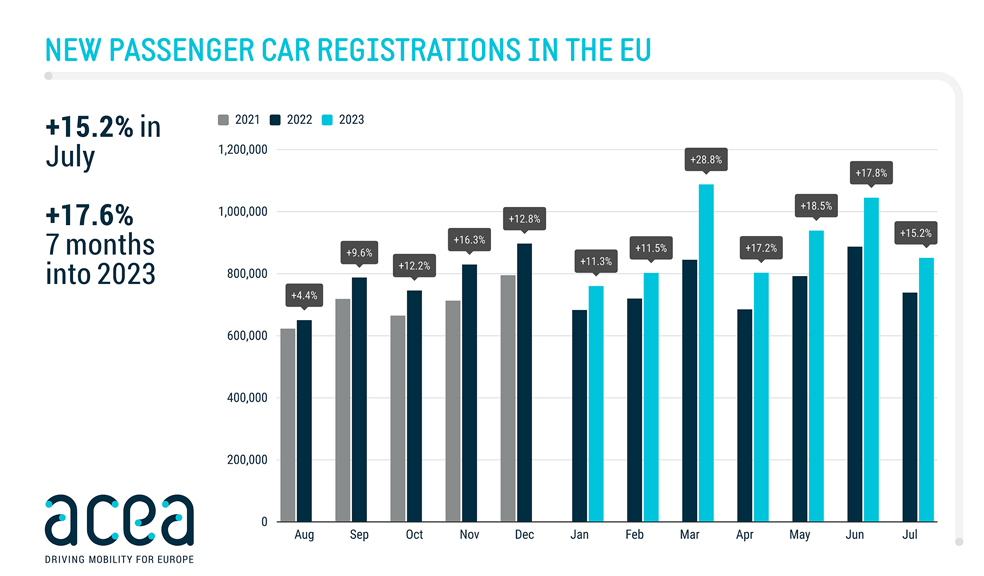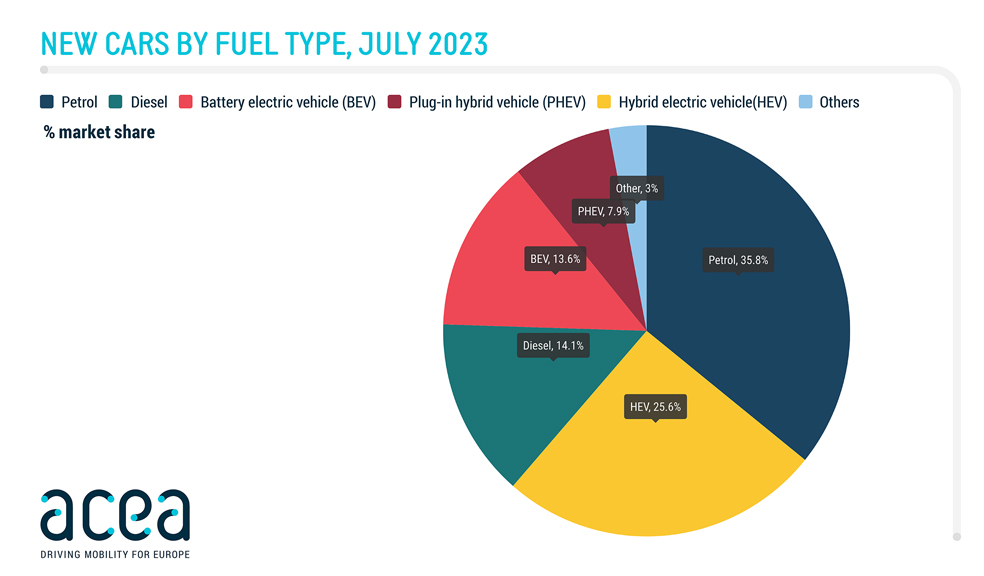– New car registrations in July increased by 15.2% and the proportion of hybrid and electric cars is now 13.6% in Europe!
Although the European automotive industry has faced significant challenges, 2023 has been a year of significant improvement. The continuous growth, driven in particular by the four largest economies in the EU, highlights how robust and resilient the European car market is.
Twelve months of continuous growth The most striking aspect of 2023’s car market in the EU is its subsequent growth. For twelve months, a full annual cycle, the car market expanded by up to 15.2%. This appears as evidence of economic recovery, where both production and demand seem to be back on track.
The four giants lead Another indicator of the health of the market is that the four largest car markets in the EU – France, Germany, Spain and Italy – all reported significant growth figures. France led the way with an increase of 19.9%, closely followed by Germany at 18.1%. Spain and Italy also had solid growth, with 10.7% and 8.7% respectively.
Big picture From January to July 2023, new car registrations in the EU increased by 17.6%, representing around 6.3 million vehicles. Despite this recovery, it is worth noting that volumes are still 22% lower than those reported in 2019. This shows that while there is progress, there is still some way to go before reaching previous peaks.
General Market:
The car market in the EU grew by 15.2% in July 2023.
A total of 851,156 new cars were registered in July.
The overall growth from January to July 2023 was 17.6%, with 6.3 million vehicles registered.
However, the total volumes for 2023 are still 22% lower than 2019.
Electric cars:
Registrations of battery-electric cars in the EU increased by 60.6% in July, with 115,971 vehicles.
From January to July, there was a cumulative growth of 54.7% in electric car registrations, with a total of 819,725 vehicles registered.
Hybrid cars:
Hybrid car registrations increased by 31.6% in July.
From January to July, almost 1.6 million hybrid cars were sold, which corresponds to a quarter of the market share.
Plug-in hybrid vehicle registrations increased by 14.5% in July, with 67,060 vehicles.
Petrol and Diesel cars:
Petrol car registrations increased by 5% in July, with 304,903 vehicles.
From January to July there was a 14.3% increase in petrol car registrations.
Diesel car registrations fell by 9.1% in July.
Diesel cars’ market share fell to 14.1%.
These data clearly show a trend where traditional fuel vehicles (petrol and diesel) are losing market share, while electric and hybrid vehicles are experiencing significant growth. This is in line with the global movement towards cleaner energy sources and measures to reduce carbon emissions.
Source and content: ACEA


